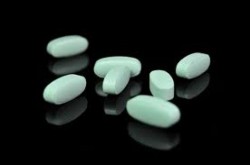Call our toll free hotline:
Get Help NOW
Top Amphetamine Treatment Centers

Get help with your amphetamine addiction today!
Amphetamine addiction is one of the worst types of addiction anyone could ever suffer from but it is treatable. Unfortunately, the use of methamphetamines has increased rapidly over the past 10 years and the number of meth labs found throughout the US and beyond are ever increasing. Amphetamine is a highly addictive stimulant that causes psychosis, organ damage, hallucinations and in severe cases death.
Treatment centers help those addicted to amphetamines to learn how to regain control of life without using drugs or alcohol to mask their problems, fears or other bothersome situations. With the help of the caring staff at a treatment center, even those who have been addicted to amphetamines for many years can get the support and care that they need to make a full recovery.
Call800-256-3490and get help today! Who Answers?What is Amphetamine?
Amphetamine is a stimulant drug that is part of the phenethylamine class of drugs similar to methamphetamine. The most common types of amphetamine drugs are prescription medications that are marketed under the brand names:
- Adderall
- Dexedrine
- Didrex
- Benzedrine
On the street, amphetamines are used to increase performance, increase moods and boost activity. They are known as “speed” as well as a number of other street lingos based largely on the actual type of medication that is taken such as Adderall or Dexedrine being known as two differing names.
Leading Causes of Amphetamine Addiction
Not all users become addicted to amphetamines as a result of recreational abuse of the drug. Many people find themselves suffering from Amphetamine addiction as a result of prescribed and appropriate use of the medication. Dependence to amphetamines develops rapidly and when the drug is used for an extended period of time it is often necessary to take more and more to achieve the same or similar effects. Most people who do become addicted to amphetamines find themselves suffering from the addiction as a result of having been prescribed the medication for a medical treatment and after taking for a prolonged period of time are unable to stop without help.
Why Quit Using Amphetamines?
Although amphetamine overdose very rarely leads to death, there are many reasons to quit using amphetamines, especially if they are not prescribed to you by a doctor. First, amphetamines can cause many different psychological disorders including paranoia, anxiety, hallucinations and delusions which all can be dangerous to the user and may cause the user to do things that he or she otherwise would not normally do. This lack of appropriate judgment can lead to much further complications for the addict, may land them in the prison system and could be a death trap.
Need free or low-cost treatment? Find free, state funded or low cost treatment options.
Treatment OptionsAmphetamine Withdrawal Symptoms
Withdrawal from amphetamine can start to take effect within a few hours of the last dose and may include a range of symptoms. The most common symptoms of amphetamine withdrawal include mental or physical fatigue, loss of concentration or memory, depression, increased appetite, cravings for sugar and suicidal tendencies. Other common withdrawal symptoms associated with amphetamine use include anxiety, mood swings, aggression, agitation, excessive sleeping, and long term health complications.
Many of the symptoms of amphetamine withdrawal will subside on their own within about 10 days of the time when the last dose was taken. For patients who stop taking amphetamines for a period of at least 30 days the risk of relapse decreases by as much as 80%. This shows that there is hope for recovery and that with the help of treatment to get off the drug, sobriety and life free of amphetamines is possible.
Have money or private insurance? If you can afford private treatment call us now:
800-256-3490 Who Answers?Treatment for Amphetamine Addiction
Amphetamine addiction treatment centers provide various types of treatment programs including residential inpatient treatment, outpatient treatment and aftercare. The first step of any amphetamine treatment, and probably the most difficult step for the addict, is detox. During the detoxification phase, the addict will physically overcome dependence on amphetamines and may feel sick, tired or lethargic for a period of time but these feelings will usually subside within 7-14 days.
Following detox, treatment centers provide counseling and therapy to help patients cope with the various conditions that may have caused them to use amphetamines in the first place. Some of these conditions include attention disorders, mental health disorders, abuse or other conditions. Patients who work their way through detox, counseling, therapy and a follow-up program that includes sober housing are at an increased vantage point for overcoming amphetamine addiction with limited risk of relapse.
Find Rehab Centers by State
Call800-256-3490and get help today! Who Answers?- Alabama
- Alaska
- Arizona
- Arkansas
- California
- Colorado
- Connecticut
- Delaware
- Florida
- Georgia
- Hawaii
- Idaho
- Illinois
- Indiana
- Iowa
- Kansas
- Kentucky
- Louisiana
- Maine
- Maryland
- Massachusetts
- Michigan
- Minnesota
- Mississippi
- Missouri
- Montana
